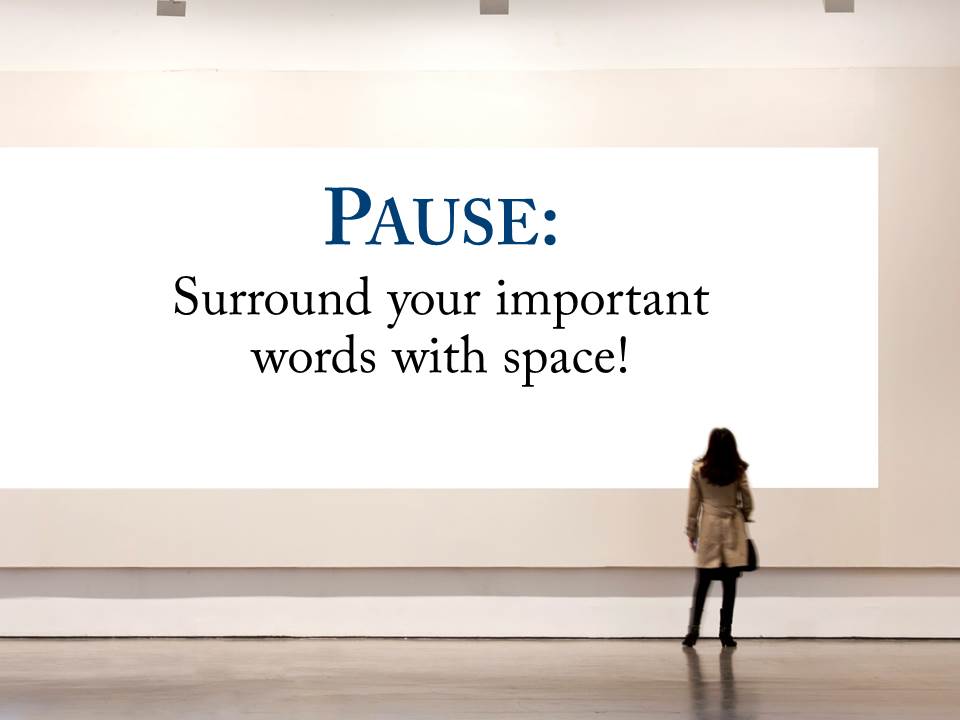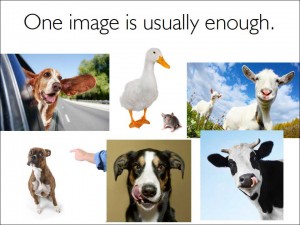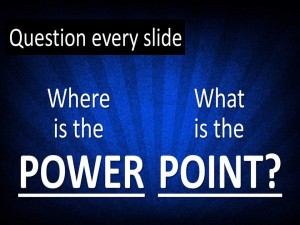B.L.U.F. Where are we going with this?
A useful strategy when organizing your content for some audiences is to give them the big reveal upfront or close to the front of your presentation. In military terms it is often referred to as BLUF.
BLUF stands for Bottom Line Up Front (don’t you just love their ability to reduce everything to an acronym?).and it refers to the need to show the big idea now instead of after 125 slides. The BLUF strategy is often used when presenting to an executive group who has little patience for a speaker who will build a big mystery. In essence, they are requesting that you prove that their time with you will be well invested. Then, after you establish the value or bottom line of your talk you can build your case with additional details.
This technique is not for every audience nor for every presenter, but BLUF may be useful to consider the next time you are planning an invasion with JCS (the Joint Chiefs of Staff) or even with POTUS.
TTFN.




